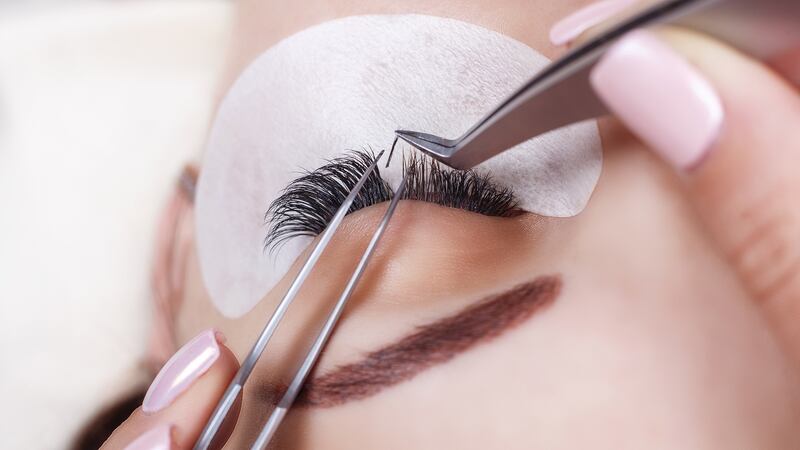ORLANDO, Fla. — Eyelash extensions have become a popular trend in the beauty industry, but a Florida eye surgeon is warning that they can draw mites if they aren't properly cleaned.
Dr. Keshini Parbhu, of the Orlando Eye Institute's Dry Eye Help Center, said the extensions of concern are ones that technicians individually apply to each lash, not the ones customers glue on themselves.
Scroll down to continue reading
More news from KIRO 7
- Five gang members arrested in King County on conspiracy to commit murder charges
- Good Samaritan nurse, 2 of her patients infected with Hepatitis C. 2,600 should get tested
- GUIDE: Navigating through May Day 2018
- 50 years ago, a piano was dropped from a helicopter near Seattle: Here's what happened
- Worker hurt in fall from Seattle skyscraper but lands in net
A woman named Ashley, who asked WFTV not to disclose her last name, said she woke up one day with swollen and irritated eyes after several visits to a salon to have eyelash extensions applied.
Ashley provided Parbhu with a photograph of her condition.
"She went ahead and put the lash ... under the microscope and told me that I did have the Demodex (mites)," she said.
#Eyelash extensions: An #Orlando #eye surgeon's warning https://t.co/Y7x1G1YlWE #wftv pic.twitter.com/T18o9TcTS3
— WFTV Channel 9 (@WFTV) April 30, 2018
The microscopic mites live off the oils in eyelashes.
"They burrow to the base of the lash follicles, and they feed off this material," Parbhu said.
Although the mites are sometimes naturally found on the human body, they tend to flock to eyelashes and eyebrows, Parbhu said. Infection can set in if they overpopulate, she said.
Parbhu said many of the cases she has seen involved patients who have had extensions individually glued on each eyelash.
"In the younger people, especially women, it tends to occur with eyelash extensions or people (who) wear eye makeup and tend to not take it off," she said.
Parbhu said she believes salons that don't properly clean application tools could harbor the mite.
Although the condition is treatable, treatment is time-consuming.
A mite is pictured.
Each eyelash must be cleaned with a tool, and patients must undergo three months of after care and take anti-parasitic medication, which can cost more than $300.
Ashley, who's now free of mites, said she'll avoid eyelash extensions in the future.
People who don't change out their eye makeup or clean their eyes before they fall asleep may also be at risk for eyelash mites, Parbhu said.
She recommends patients wash their pillowcases often, and she said those who choose to wear eyelash extensions should use medical grade cleansers containing tea tree oils.
Such products may be purchased on Amazon.com, but Parbhu recommends directly buying them from an eye doctor.
Cox Media Group








